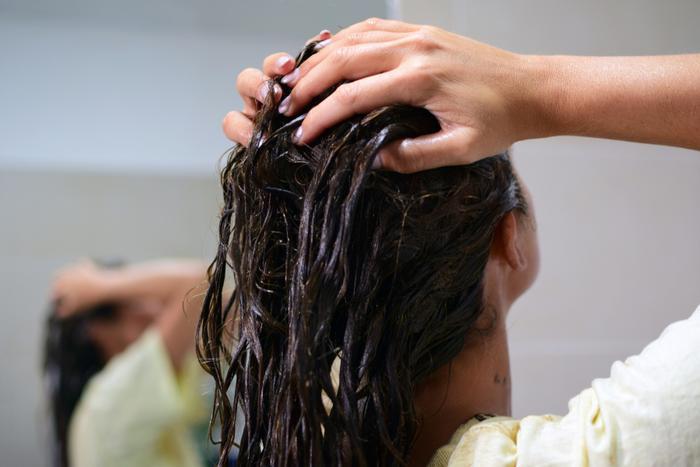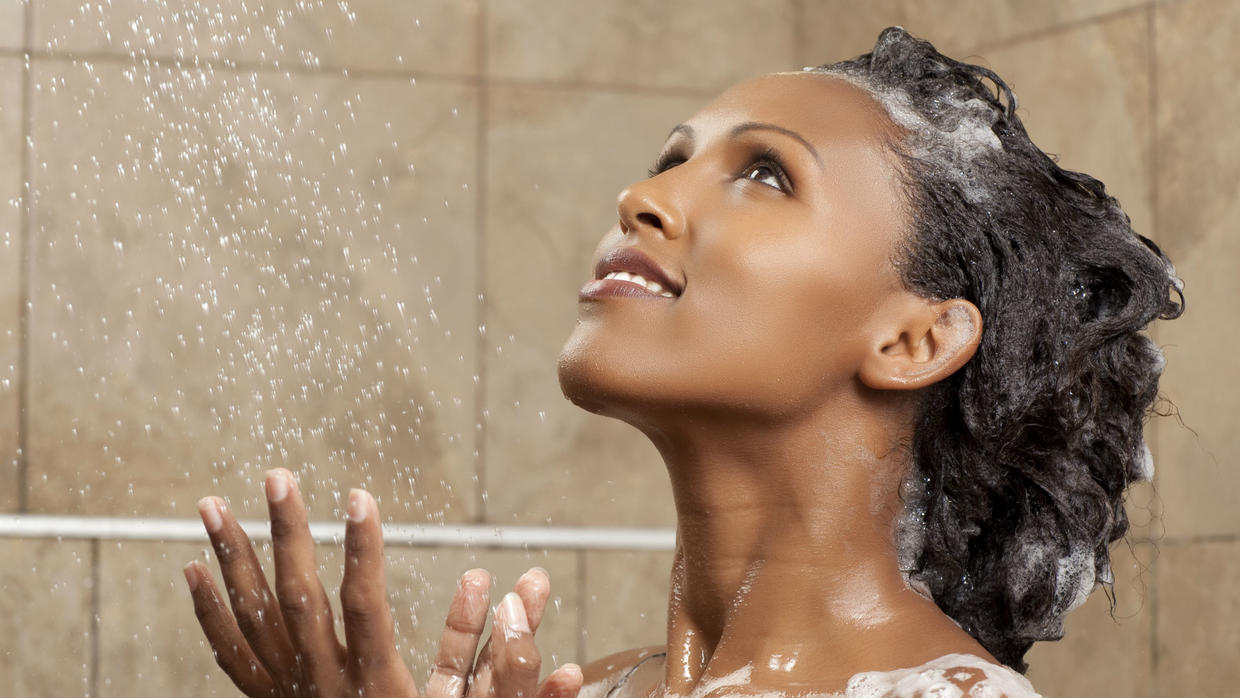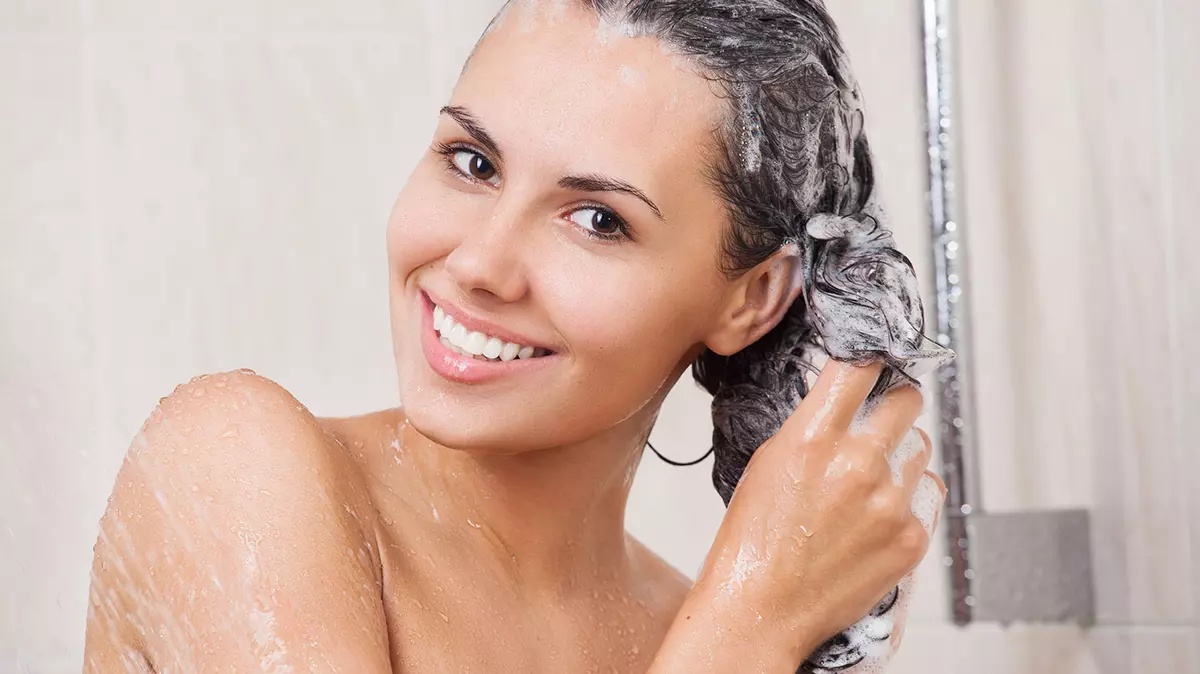If you have naturally curly hair, you know the struggle. Curly natural hair is generally dryer compared to other hair textures. But in the past several years, people have experienced success with the co-washing technique. What is co-wash? And what is the difference between co-wash and shampoo washing?
Well, many people mistake co-wash as conditioning your strands. But it is not the same. Keep reading to find out more about the buzz around co-washing.
The simplest explanation is that you are replacing your shampoo with just one product that can simultaneously do the job of your shampoo and conditioner. The role of a shampoo is to cleanse the hair. And the role of the conditioner is to keep hair extra nourished and moisturized.
Well, a cleansing conditioner for co-wash allows natural oils to clean, nourish, and hydrate the scalp and hair.
Co-washing is there to fix damage from hair products. But the main benefit is you have one less product to buy. So, you are saving money and space in the bathroom.
What Is Wrong With Shampoo?
Before we get into the co-wash versus shampoo debate, let’s talk more about shampoo. As you know, many shampoos have sulfates in their formula. Yes, sulfates clean hair and make a frothy lather. But they are not your hair’s best friend.
Sulfates and traditional shampoos can strip your scalp of its natural oils. This can eventually your hair to break and become brittle.
Does The Hair Type Matter?
Yes, to a degree. Co-washing is not designed for all hair types. It helps in certain hair types and has no effect on others. It was designed for those with dry, wavy, or curly hair, be it coarse or medium-texture. Co-washing works great for women with color-treated hair as well.
It is difficult to style the hair after washing with shampoo if you have any of the above-mentioned hair types. But with co-washing, you can fix most of your problems.
What Exactly Is Co-washing?

In simplest terms, co-washing is “the use of a specially formulated cream cleanser to remove buildup and cleanse the hair without the lathering or harsh ingredients, including sulfates and parabens”. You use a conditioner to wash and cleanse your hair. But it is not as simple as conditioning.
As you can imagine, there are a lot of benefits to trying this hair washing technique. Many people choose it because of the benefits of ditching the traditional shampoo. As we said before, a traditional shampoo might be loaded with sulfates that will strip curly hair of natural oils and create frizz, dryness, and breakage.
With a proper co-wash, you are still scrubbing your scalp, but with a conditioner as if it were shampoo. You are cleaning the scalp and removing any dirt and residue, but keep your hair hydrated at the same time.
There are also drawbacks. Yes, co-washing can be game-changing for those with thick, coarse curls. But there are downsides as well.
The number one drawback is the risk of product buildup on the scalp. It can cause scalp itchiness and scalp irritation.
Do not use it if you have flaky scalp conditions, including dandruff, psoriasis, or seborrheic dermatitis. These scalp conditions can be worsened when you use co-washing products instead of regular shampoo.
How To Co-wash Your Natural Hair?

Let’s try and explain the process. This will help you understand the co-wash vs shampoo debate better.
-Start by applying the first round of conditioner
-Scrub the scalp and remember the friction and scrubbing motion is what helps you remove dirt and grime from the scalp. Without friction, you are not cleaning your scalp
-Rinse your hair completely
-Apply a second round of conditioner, starting at the end and working your way up to the mid-shaft of your hair. This will help you detangle your hair strands and condition them
-Rinse until there is no product on your hair
-Repeat the process two to three times per week
What Is The Difference Between Co-washing And Conditioner?

Co-washing and conditioning are similar, but not identical. Conditioning is all about moisture and detangling. We use protein-rich conditioners that strengthen and repair the damage.
Then there are cleansing conditioners that have special ingredients that can gently cleanse your hair and remove product buildup.
Co-wash can replace a conditioner in your routine. But you cannot co-wash with any old conditioner. If you do that, you run the risk of not properly cleansing your hair.
A co-wash shampoo, or co-wash conditioner if you like, is a cream cleanser that doesn’t contain the nasty chemicals that cause frizz. It is all about finding a product that will cleanse and moisturize your hair at the same time.
Yes, you can try co-washing with your regular conditioner. But we recommend finding a product that is specifically designed to cleanse and condition your hair. Remember, most conditioners contain silicones that add shine and tame frizz. But these silicones are synthetic polymers that can build up in your hair, leaving it limp and lackluster.
Avoid it by using a light conditioner that has special cleansing ingredients. Some of the ingredients you want to look for in your co-washing conditioner include emollients like oils and butters. These fight frizz by softening and smoothing the hair cuticle.
Can I Still Use A Conditioner?

Possibly, you can still use a conditioner if you want to give co-washing a try. But make sure your conditioner doesn’t contain silicones. This is a common ingredient in conditioners that adds shine to your hair. But with continued use, you get the opposite effect. A build-up of product can weigh down your hair and leave it looking dull.
Besides that, here are ingredients to look for:
– Humectants like honey or vegetable glycerin, these work to lock in water and moisture
– Emollients like oils and butter that can smooth the hair cuticle
– Protein, be it wheat protein or soy protein to coat the hair shaft
– Moisturizers, including aloe vera and amino acids
When to co-wash and when to shampoo?
Let’s finish off the co-wash versus shampoo debate by answering when to use each. There are many different hair cleansers. To reap the benefits of both co-washing and shampoo, you can use them both in your hair routine.
But alternate between the two each wash day. You can use co-washes mid-week when you want to restyle and your scalp is not dirty and full of build-up product.
Co-washing is also great when you want to wash your hair frequently, be it because of working out or because your profession demands it.
But if you are suffering from a flaky scalp, or you have product or sebum build-up, use a clarifying shampoo every four to five washes.
